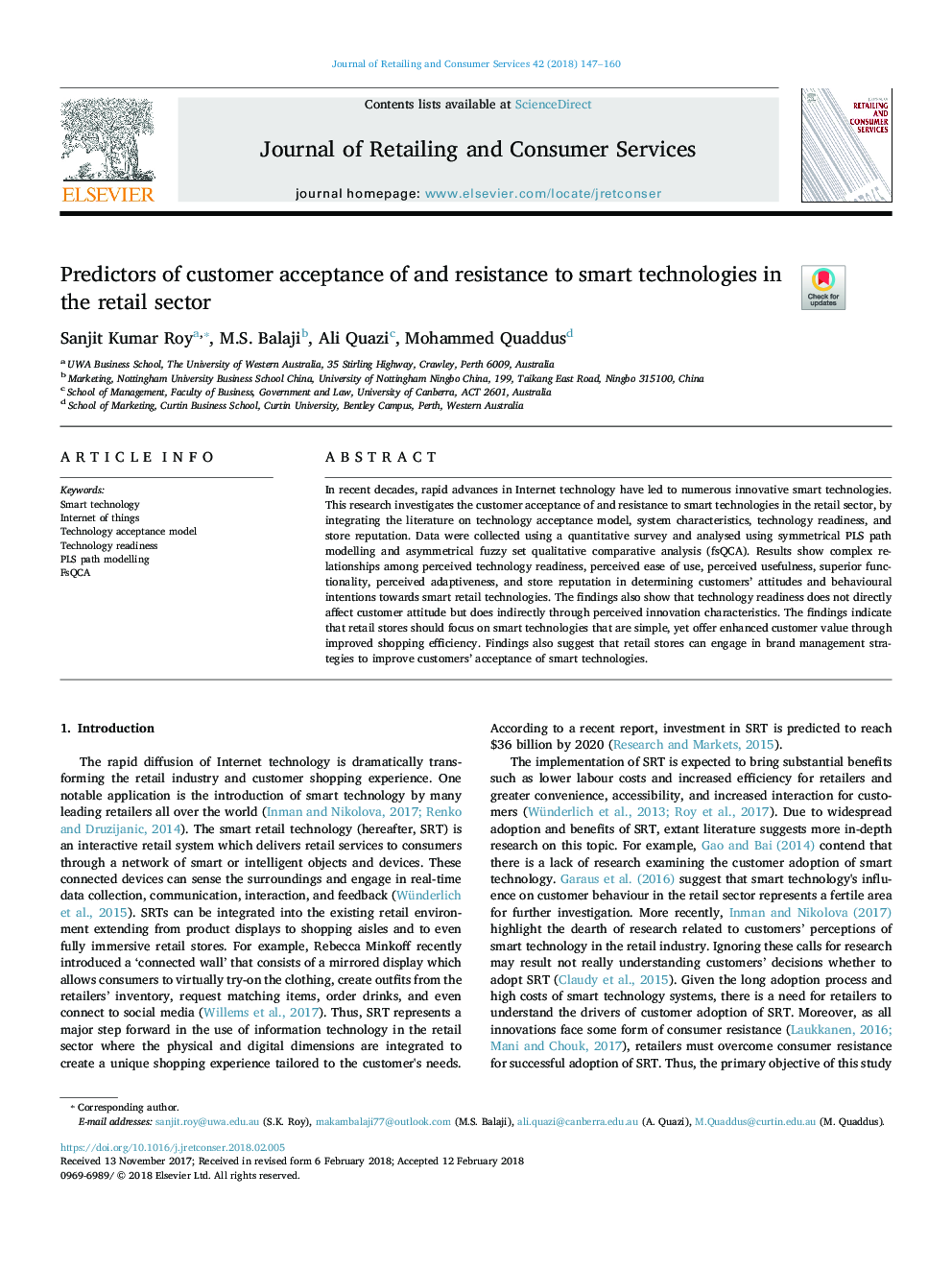| Article ID | Journal | Published Year | Pages | File Type |
|---|---|---|---|---|
| 7433544 | Journal of Retailing and Consumer Services | 2018 | 14 Pages |
Abstract
In recent decades, rapid advances in Internet technology have led to numerous innovative smart technologies. This research investigates the customer acceptance of and resistance to smart technologies in the retail sector, by integrating the literature on technology acceptance model, system characteristics, technology readiness, and store reputation. Data were collected using a quantitative survey and analysed using symmetrical PLS path modelling and asymmetrical fuzzy set qualitative comparative analysis (fsQCA). Results show complex relationships among perceived technology readiness, perceived ease of use, perceived usefulness, superior functionality, perceived adaptiveness, and store reputation in determining customers' attitudes and behavioural intentions towards smart retail technologies. The findings also show that technology readiness does not directly affect customer attitude but does indirectly through perceived innovation characteristics. The findings indicate that retail stores should focus on smart technologies that are simple, yet offer enhanced customer value through improved shopping efficiency. Findings also suggest that retail stores can engage in brand management strategies to improve customers' acceptance of smart technologies.
Related Topics
Social Sciences and Humanities
Business, Management and Accounting
Marketing
Authors
Sanjit Kumar Roy, M.S. Balaji, Ali Quazi, Mohammed Quaddus,
